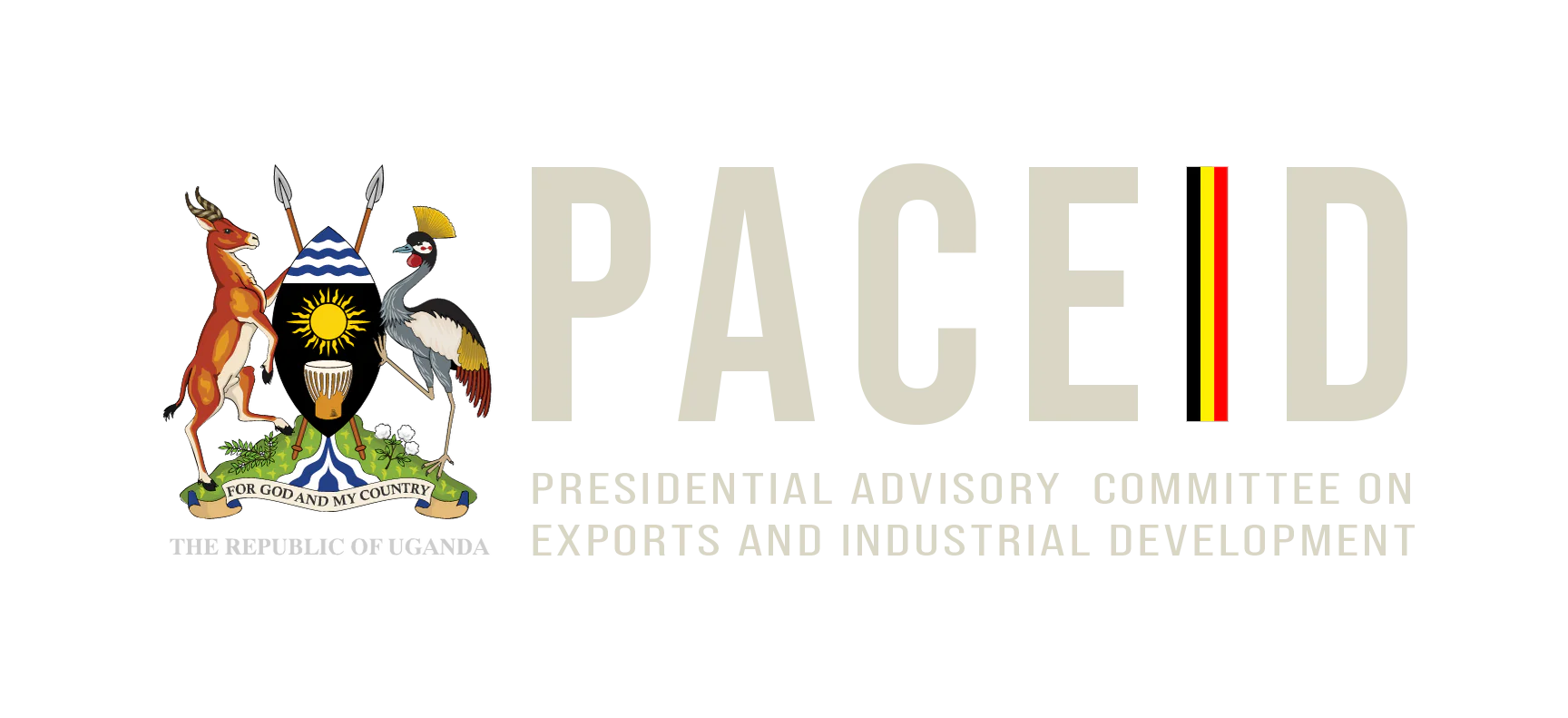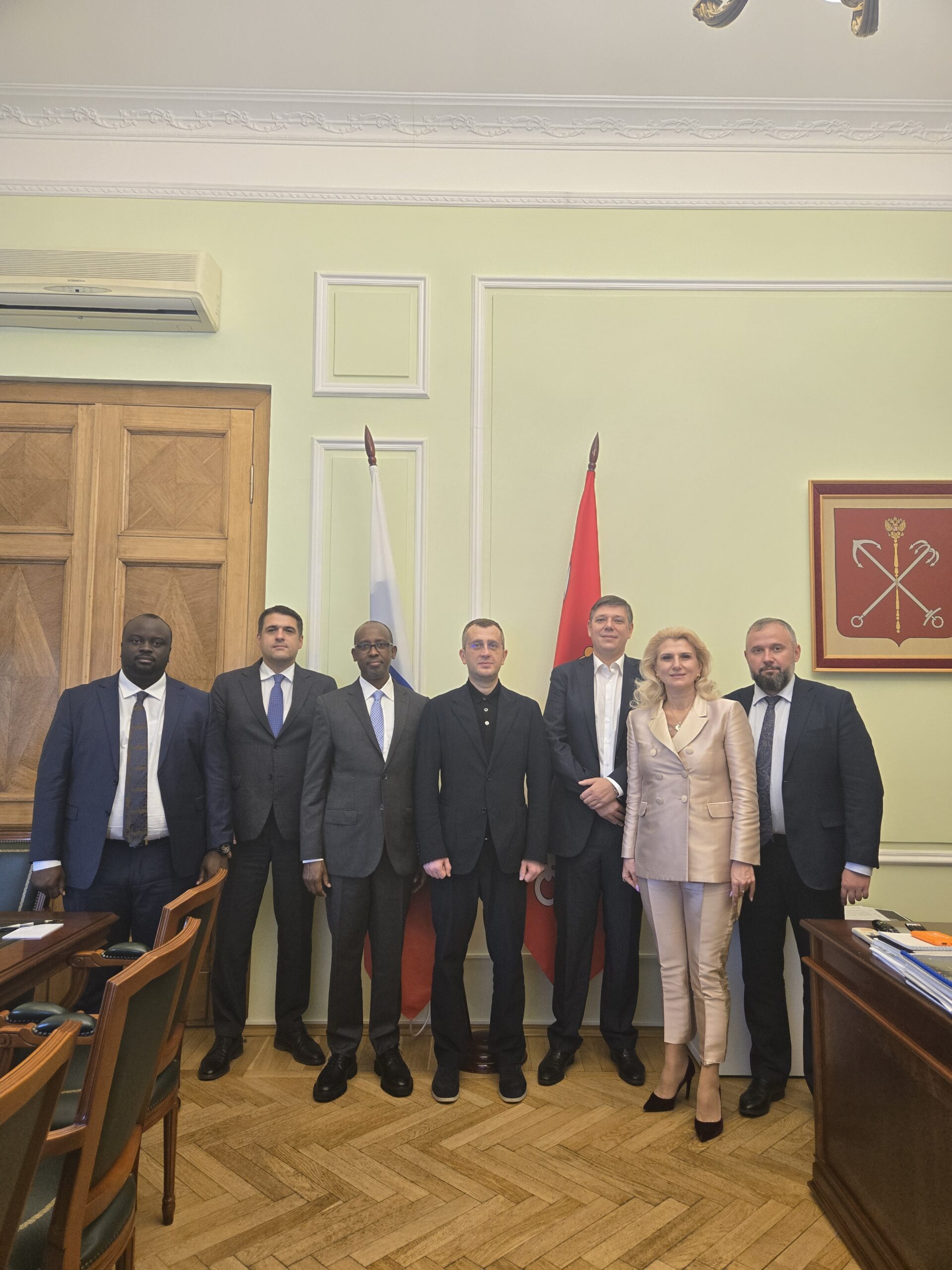The Presidential Advisory Committee on Exports and Industrial Development (PACEID) team led by Mr. Odrek Rwabwogo and accompanied by Uganda’s Trade Envoy to Serbia, Mr. Bratislav Stoiljkovic, and Mr. Matthew Bagonza of the PACEID Secretariat along with Serbian officials in the coffee and trade sector, on Monday this week, met the Chairman of the External Committee on Foreign Relations for the city of St. Petersburg, north-central Russia, Mr. Evgeny Grigoriev, and Ms. Nana Gvichiya, the head of the state’s tourism committee.
The parties discussed opening a trade hub to sell Uganda’s agricultural products and invest in the value chain for coffee, tea, lithium, iron ore, and other products. Uganda is making an effort to raise USD 6bn in exports in the next five years. Mr. Grigoriev told his visitors, “An African proverb which says, one who fears the sun cannot lead” applies to the relations between Uganda and Russia and encouraged the delegation to open a coffee hub and exchange trade relations with Uganda transparently. He proposed a business center for both Uganda and Russia in both their capitals of Kampala and St. Petersburg, to promote trade.

The meeting was attended by the head of medical and life sciences and lecturer at the state chemical and pharmaceutical university of St. Peterburg, Prof. Vladmir Perelygin who asked the delegation to share knowledge with “universities in Uganda for research in human and animal medicines”. Rwabwogo and the delegation later met the Deputy Governor of the state, Mr. Boris Piotrovsky who represented Governor Alexander Beglov while he was away attending the BRICS summit in Kazan. Rwabwogo told the deputy Governor, “Uganda is entering a new and decisive phase on industrial growth, manufacturing and value addition for all her agricultural and mineral products. We now require a fresh perspective on both our new and old markets in order to strike meaningful and respectful business partnerships across the world”.
The city of St. Petersburg is Europe’s sixth largest with some six million (6m) people and a GDP of more than Euros120bn.Tourism contributes about 2.7% of the GDP given the city is Russia’s cultural, art, cuisine and entertainment center. The city received 21 million tourists last year and the city leadership asked for a partnership with Uganda Airlines to promote tourism with Africa. St. Petersburg has a highly diversified industrial base in oil and gas, boat building, data and technology, with more than 850 large scale manufacturing industries along with 22,000 SMEs that dominate exports in the region. The state of St. Petersburg was in the past led by President Vladmir Putin, before he became President of the Russian Federation. The country of Russia imported more than 220,000 Metric tons of coffee in 2019 and has an average drinking capacity of 1.5 cups per capita with a very growing young population of coffee enthusiasts.

The PACEID delegation later visited the national war museum in St. Petersburg, which hosts more than 10,000 square meters of exhibits of the second world war and the role of Russia, formerly Soviet Union (USSR) in defeating NAZI Germany. Rwabwogo who gave glowing tribute to the Soviet war hero, Gen. George Zhukov, defender of the city of St. Petersburg (in 1941 called Leningrad till 1991) for more than 900 days of disease and starvation, along with the leaders of Soviet Union who carried the heavy load of the war and defeated the evil forces of NAZI Germany. He said, “We must all remember war is a terrible thing and all who understand our world, should learn to negotiate and do what it takes to never engage in wars”. He added that Russia continues to present the world with one of the best examples of resilience during that great patriotic war”. He praised the USSR’s innovation in tank warfare at a time when Soviet Union was thought weak and less industrialized by both friend and foe. “It gives us in Africa an example of humility and focus on both the unity of our continent and our economy as a way of ensuring a stabler future” Rwabwogo told the museum directors who conducted the delegation the afternoon of Monday.
On Tuesday, October 29, 2024, PACEID leadership then flew to Moscow, Europe’s largest city at 12 million people and Mr. Rwabwogo gave a lecture on Africa detailing the last 100 years of Africa’s relationship with Russia and the developed world on matters of trade, diplomacy and governance. Rwabwogo was welcomed to the Financial University of Moscow, formerly the institute of Economics and Finance. The university is considered one of the top five universities in Russia and was founded in 1919. He was welcomed to the lecture by Ms. Anna Suchilina, Deputy Dean of Academic Affairs of the faculty of Social Sciences, Mr. Denis Deninov, lecturer at the peace and conflict resolution department and Ms. Daria Osinina, Deputy Dean of International Cooperation. The university’s alma matter includes President Lula Da Silva of Brazil, the Cuban Argentine born Ernesto Che Guevara and the current minister of Finance of the Russian Federation.

“Africa lost more than 300 years of growth when Europe and much of the west was rapidly scaling through the industrial revolution. We have now largely stabilized under some good leaders, a number of them young and; we are catching up”. He added that it is important for young people in Russia to study far “beyond your borders, build relations with Africa so that you can serve your world better”. Rwabwogo encouraged the students to teach Russian language, classics, poetry, science and culture to the world saying, much of what Russia does, doesn’t seem to be very much known to the English-speaking world. “It is your challenge to explain Russia to the world as a young and educated generation”. He took the university students and lecturers through a detailed opportunities list in cooperation on enterprise building, science and innovation, patents in medicine and foods that Africa presents to the next generation of world entrepreneurs” calling on Russian universities and academia to develop relations with African universities to help “both our worlds to know each other and build harmony”. The students who included science, mass communications and political and social sciences and arts, were curious to know how Russia should work with Africa given the lack of limited interaction in business between Africa and Russia.

The PACEID delegation later visited several locations near the Kremlin in the heart of Moscow, near the 1903 landmark hotel of Nationale, to find where Uganda can locate a trade hub for coffee and other products.

